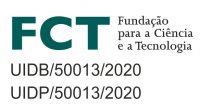Thiago Sapede, 2012.
The objective of this work is to discuss the importance of the Catholicism in 18th century Kingdom of Kongo political system. We avoid dealing with those elements through an idea of cultural imposition or simple incorporation, which would be a mistake when we deal with the complexity of the historical process in Kongo. We focus on the African agency on the historical process, mainly the political elites acting in central or provincial powers. The research analyzes three reports written by catholic missionaries who lived and worked in Kongo in the last four decades of the 18th century. Besides these (more consistent) sources, we analyze a few other documents: mainly letters exchanged by Congolese authorities, missionaries and Portuguese authorities in Luanda and Lisbon. In our historical research we note the central importance of the catholic elements (Africanized and incorporated to the Congolese context) to the functioning of the operating political system of the post-restoration period. Our proposition does not focus on the Catholicism in a context of the missions or the cultural contacts between Europeans and Africans. Beyond that discussion; we choose to look to the Catholic elements as insights to understand the political practices and the solidification of a Congolese political identity. In this context; the catholic rituals, sacraments, specialists and insignia are seen as important tools of re-memorization of the political tradition that connected Catholicism and political power in the Kingdom of Kongo.
Thesis in Portuguese.
Full citation: SAPEDE, Thiago Clemêncio. Muana Congo, Muana Nzambi Ampungu: poder e catolicismo no reino do Congo pós-restauração (1769-1795). Dissertação (Mestrado) – Faculdade de Filosofia, Letras e Ciências Humanas. Universidade de São Paulo (USP). São Paulo. (10/04929-6)
Further details here.





